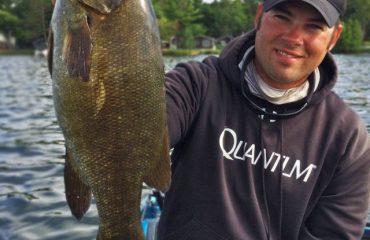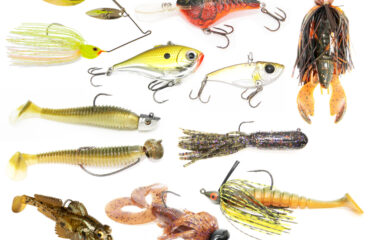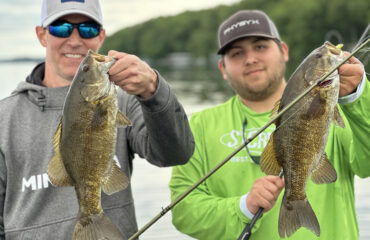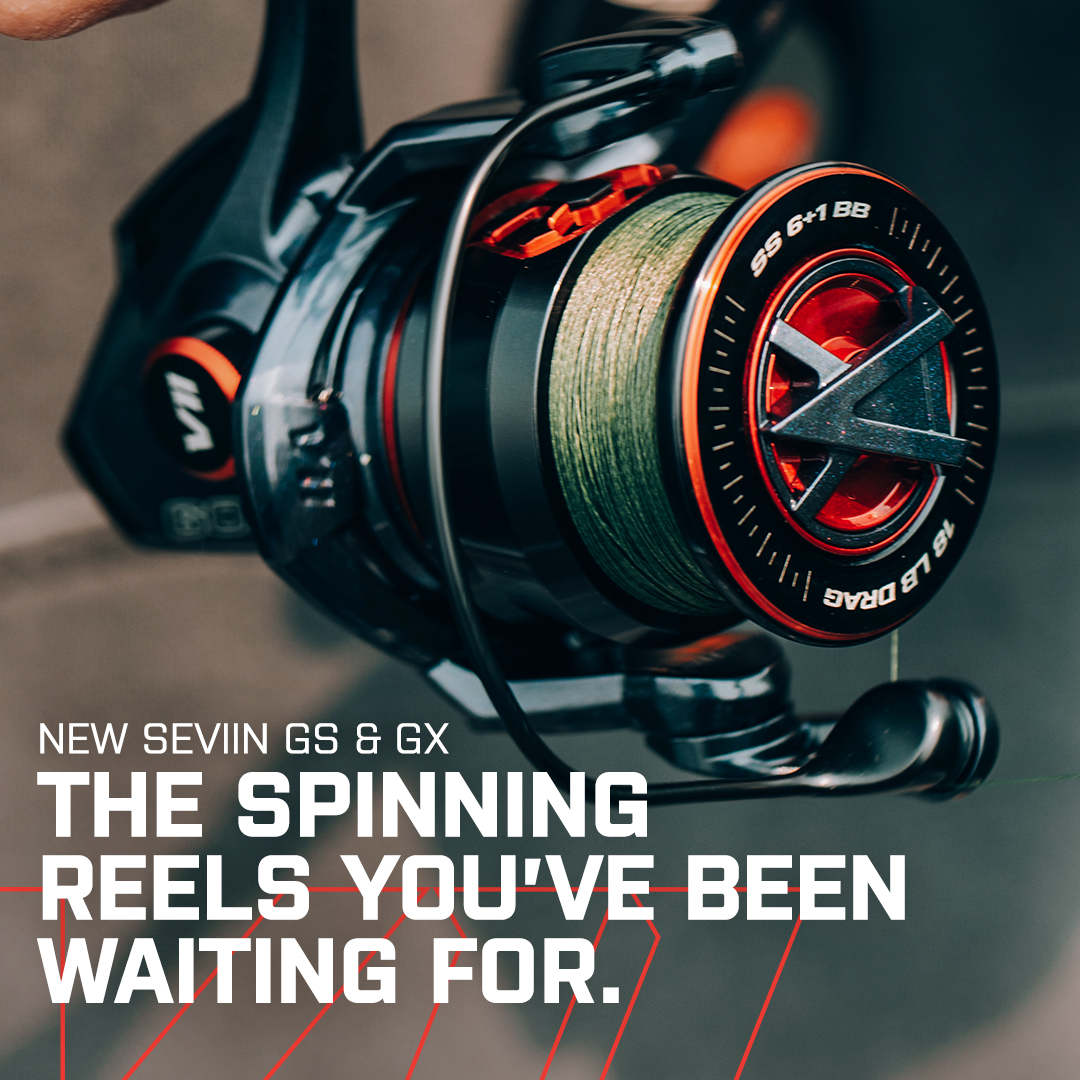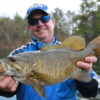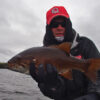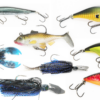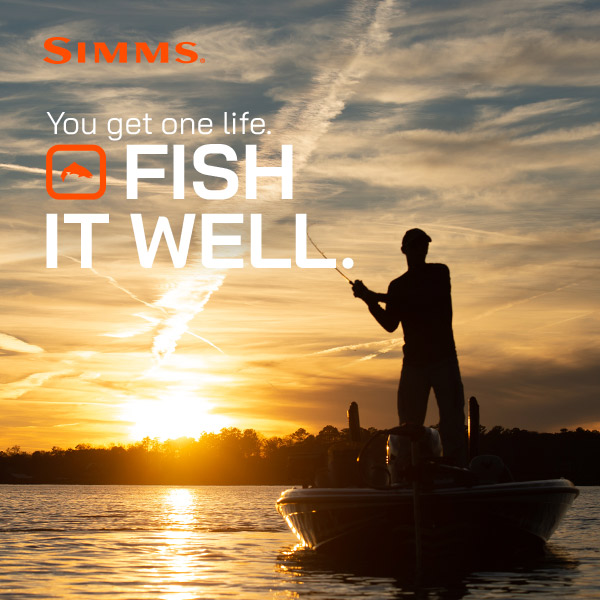Mistake-Free Smallmouth Fishing
Perfection isn’t an action. It’s a habit of meticulousness guided through fundamental process. As anglers, we can expect better of ourselves on the water on a daily basis so the next day of fishing is better than the last. To accomplish mistake-free fishing, we must learn from our past mistakes.
Practice makes perfect. I’ve failed more in life than I’ve succeeded. The same holds true in fishing. The five fishing mistakes I’m highlighting will make you cringe – miscues that mean the difference between success and failure. Some are conscious blunders, while others are avoidable mistakes. They each involve the mental side of fishing.
You might share in a few of these mental lapses yourselves. While I am no certified psychiatrist, my hope is you can learn from these common mistakes and some of my failed fishing experiences.
1 – Lack of Concentration
Don’t fish distracted.
The best anglers in the world are known for their mental toughness. While I can be an airhead with my loving wife at home, come trip day I am all business seriousness. Few outside influences will affect my fishing plans for the day.
On some trips, I’ve been known to focus completely on studying and analyzing what fish are doing down below. Some guests complain I’m too quiet, or don’t fish hard enough behind them, and our trip would have been boring if it weren’t for my Ranger’s SiriusXM stations. I concentrate intently on our strategies and approach, so the most dialogue I share is my instruction.
Growing up, I was poor at concentrating. In the past, I’ve had very poor concentration and lack of mental toughness wreck fishing trips. Those turned into lessons I learned from, that were never repeated again.
For instance, the last time I visited Lake of the Woods was in August, 2015. I caught nothing that entire week. I let my anger & frustration, bad luck, and unqualified boat partners dictate my success. To this day, I will never visit another destination fishery without my own boat or compatible partners, and without my fishing intellect inputting most of our fishing decisions.
Since then, I haven’t endured any colossal failures like LOTW 2015.
The lesson to learn from my experience is never allowing yourself to be distracted by other thoughts, stressors, and outside influences you cannot control. Don’t have doubts over your decision making and present actions. Don’t get angry at the other humans sharing your boat. Otherwise you’ll be sure to blow hook-sets on bass, snooze on figure-eight opportunities with muskies, or worse yet break some skegs atop shallow rock bars all while not paying attention!
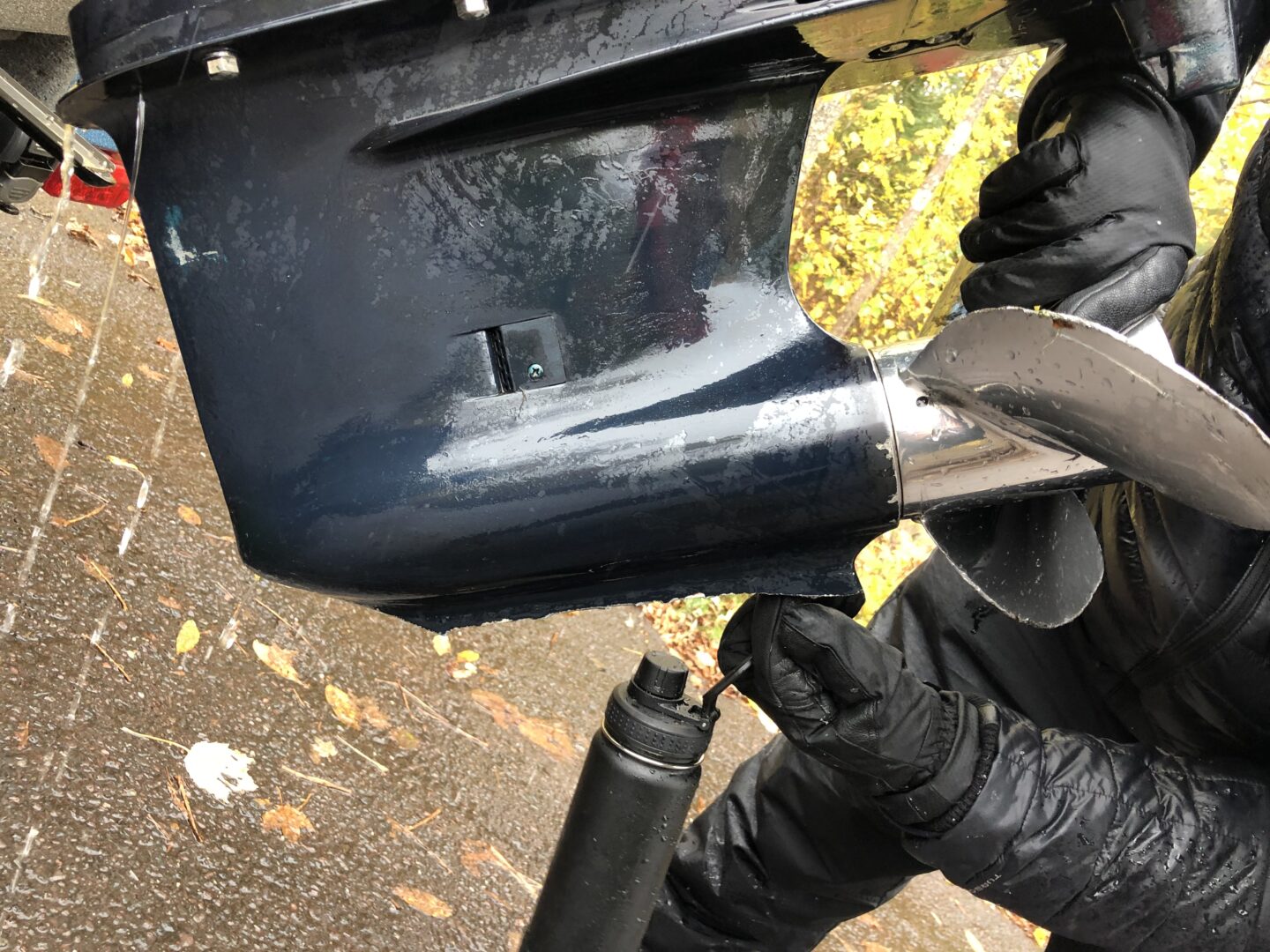
2 – Failure to Adapt
I have a pet peeve against one-dimensional anglers who are enamored with a single lure or pattern that they fail to adjust to changing conditions which will render their strategy ineffective.
Throughout the season, I get a lot of finesse and drop-shot guys. Quite frankly, they’re my least favorite strategies of them all. Several fish are caught by these effective methodologies but when conditions change and fish want something else, they have a refusal to adapt. They live and die by it.
I don’t ever recall being fixated on a single lure or presentation that would define me.
In order to catch fish and pursue big fish effectively, you must be consciously aware of what the fish are doing and what they might do next. Anticipation of how likely a bass or muskie will change behavior is a mental exercise I go through often as the day progresses.
It’s important to focus on presentation, manipulation of action, and its methodology, but it’s more important to focus on what you’re doing and maintaining a broader vision of what’s going on in the water around you.
A diversified lure selection will not only make you a more versatile angler, but allow you to catch more fish because you’ve adapted to their wants and needs. Prime patterns and favorite lures can be revisited each year, especially as the environment and behaviors of fish dictate their locations and influence their feeding habits.
Chasing trophy smallmouth bass year round like we do requires a good daily lure selection. Be diverse, and not one-dimensional. Don’t live by and die by one strategy, or get caught by the lure.
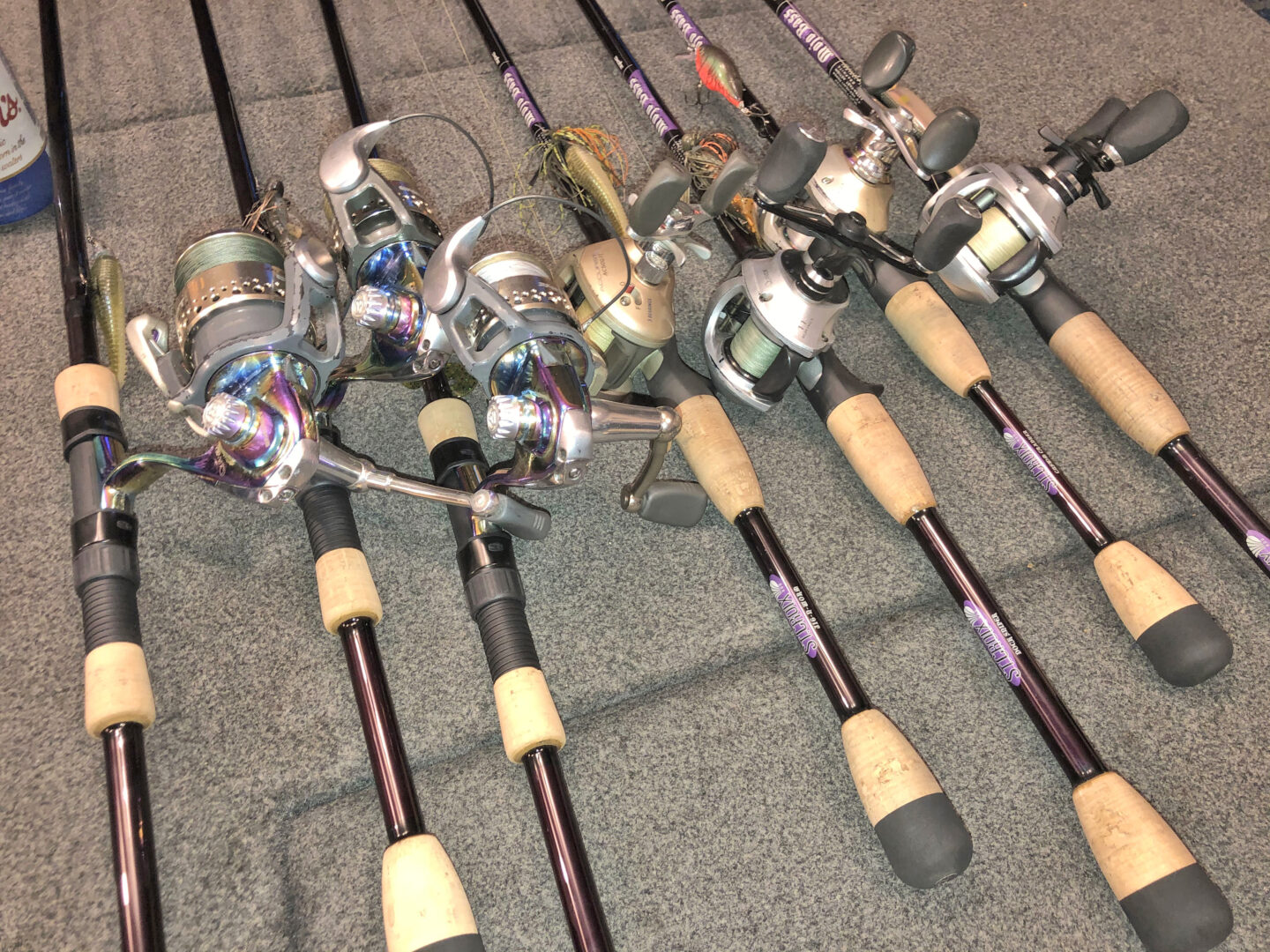
3 – Dependency on Shallow Water
Despite the advent of side-imaging, 360 imaging, and live scope technologies, many anglers continue to be overly-dependent on shorelines and near-shore fishing. It amazes me how many boats flock to shorelines while I’m targeting schools of fish offshore in no-mans land. The fish offshore are the most elusive, but continue to be the least pressured specimens of the population.
One of the biggest mistakes bass anglers make is their reliance and dependence on fishing shorelines, docks, and near-shore habitats. Don’t be a bank beater.
Old habits are hard to break. Most of the fishing pressure lakes receive is near shorelines. Look over the shoulder, and you will learn the best fishing available in the entire lake is out towards that direction.
Gamefish species such as muskies, walleyes, and smallmouth bass are primarily offshore and deep structure-oriented fish year-round, only to be found shallow, near shore, in spring and during specific summer and fall scenarios when food availability and water temperature is ideal. Adult fish spend majority of their lives in deep water, away from shorelines and the pressure. The largest members of most fish populations will usually live and lurk where they will be least pressured and exploited.
Bank beating is impractical to consistent fishing success and limits the growth and evolution of an angler. What bank fixated anglers fail to understand is majority of the shorelines that are fished and beaten is mostly dead, unproductive water.
Offshore fishing is advantageous. It’ll give you more options, because most fish species hold deeper. Additional factors such as fishing pressure and weekend boat traffic will also drive fish into deeper water. On community lakes and busy weekends, deep water patterns tend to hold up better than shallow water patterns. Shallow fish spook, and are more susceptible to changing conditions and increased pressure.

4 – Waste of Time
Come early, stay late. This is my daily motto. Even though a guided fishing trip with clients may last only 8 or 9 hours, most serious fishing guides undergo 12 to 16 hour days of fishing-related activities like I do.
What you get out of fishing is what you invest into it. There is no substitute for experience. You only get experience and achieve lessons from spending time on the water. Not everyone has this luxury. Don’t waste a single second of it.
Many anglers fail to utilize their time on the water wisely, failing to concentrate on learning from every hour they spend on the water. Rather than continue learning the lake when fish aren’t biting, they’ll give up entirely. Whether leisure fishing or on hosting guided trips, I always make an effort to learn more about the fishery so that on my next visit it fishes better for us.
Whether fish are biting or not, fishing is never a waste of time. You can tell your wives and other critics that.
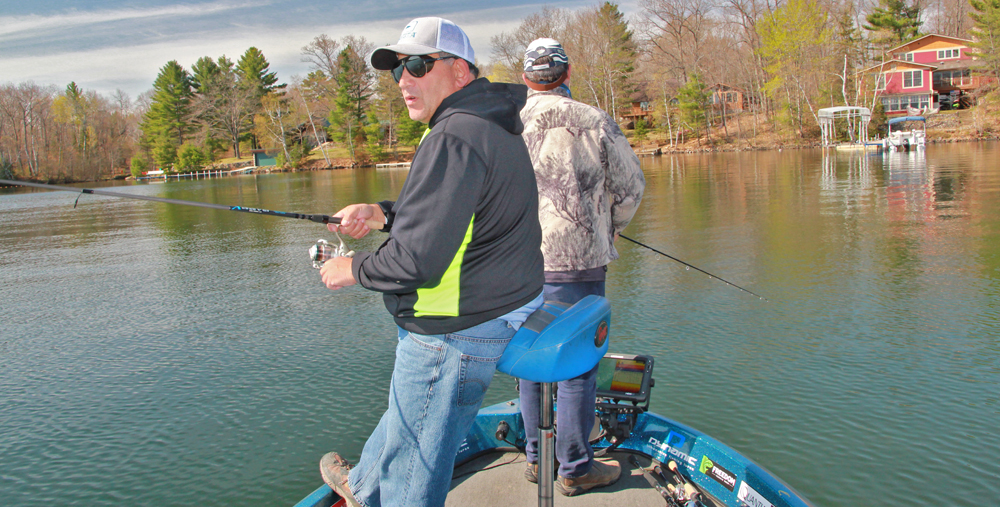
5 – Fishing without a Plan
To be efficient on the water, we must always fish with a plan.
The night before a trip, I’ll spend up to a few hours preparing our tackle for the day. This activity is a relaxer, helping me prepare mentally.
While spooling reels, re-rigging, and coordinating tackle, I review to myself what I learned that day, and the changes or adjustments I should do the next day. This is all part of my preparation routine. When I go to bed, it’s reassuring to know that I’ll begin the next day with everything in my boat rigged and situated perfectly.
Before traveling to the boat landing, have a game plan for your day of fishing. Create some ideas of which approaches to take, what alternative tactics might work, and when you might need to make a move elsewhere on the lake or to a new body of water altogether.
The night before each trip day, I try to settle on at least two primary waters for the day that’ll be compatible to the weather, my anglers, and our fishing goals. If one or both options aren’t fishing satisfactorily due to weather and other factors beyond our control, I’ll have at least two or three other nearby backups to fall on that could hopefully save our day.
Not everyone is as meticulous and OCD in this arena like I am. Assuredly, these behind the scenes activities will eliminate wasted time, and extracurricular distractions that would otherwise control your precious fishing time.
One of the most important aspects to the successful planning and execution of a fishing trip is scheduling during periods of best weather and anticipating how fish will respond positively and in favor of weather and conditions. If you aren’t studying the weather and forecast the night before a trip, and then basing your lake selections on calculated risks, you aren’t going to fish efficiently or successfully. Worse yet, you might end up fishing at the wrong body of water that day. During any weather system, you should always be at a body of water that fishes favorably to the weather and conditions you are being dealt with.
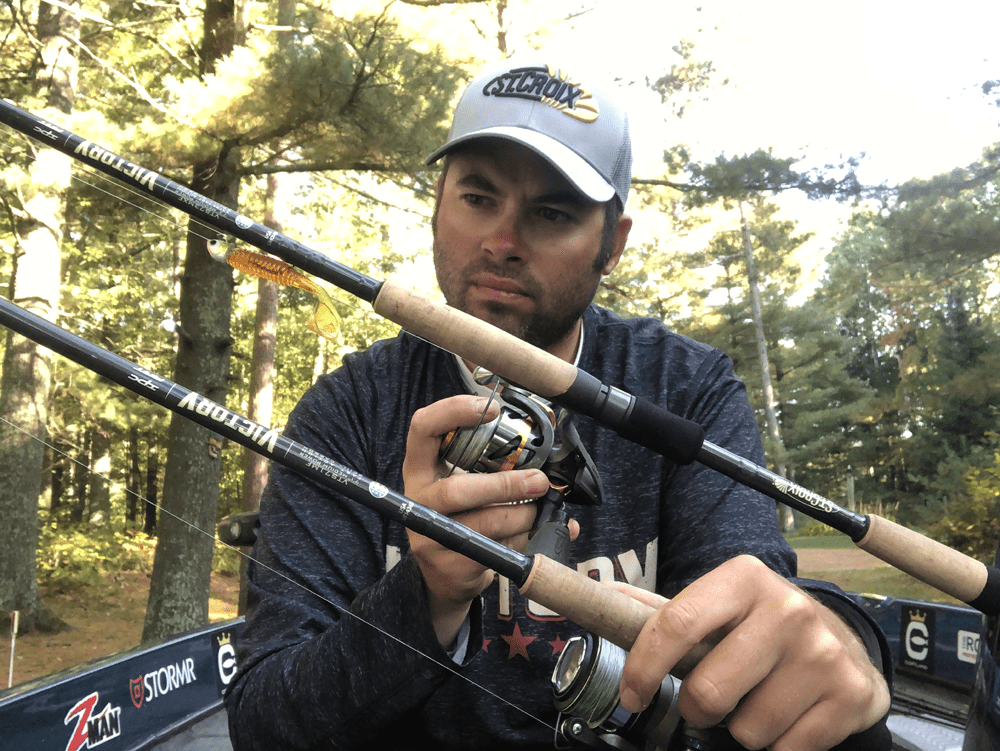
We all make avoidable mistakes on the water, and in this world perfection does not exist. It is a standard that we’ve made by our own perspectives and personal standards.
There’s no standard for perfect, mistake-free fishing. It’s physically and mentally impossible to be perfect at fishing. Every angler has a flaw. However, we can challenge ourselves to become better at mastering our craft and eliminating mistakes. Eliminate these five errors from your repertoire and you will experience improvement and hold yourself to higher standards this season.
Andrew Ragas splits time between the Chicago area and Wisconsin’s Northwoods. Based in Minocqua, WI, he specializes in trophy bass fishing and offers guided trips from May thru October. While big bass is the passion, he dabbles in multi-species as well. He may be visited online at www.northwoodsbass.com





